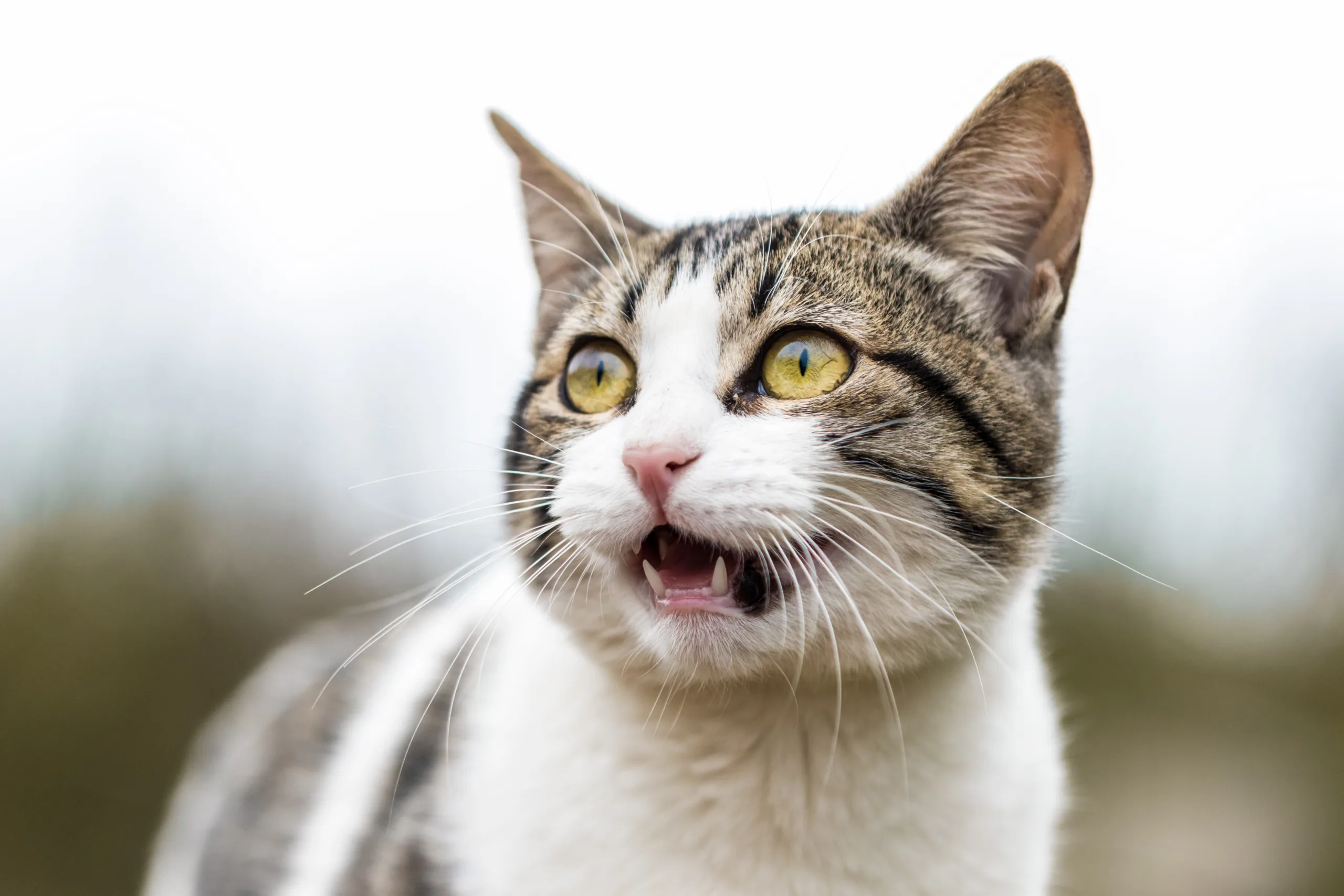Cats are known for their various ways of communicating, from subtle body language to distinct vocalizations. While some cats are naturally quiet, others are incredibly vocal, expressing themselves with an array of meows, purrs, and even chirps. In this article, we’ll delve into the reasons behind why some cats are more vocal than others and explore what their chattiness might signify.
For more about cats click here
Understanding Feline Communication:
Cats communicate primarily through vocalizations, body language, and scent marking. Each cat has its own unique way of expressing itself, and its level of vocalization can vary greatly. Some cats prefer to communicate silently through gestures, while others are more inclined to meow and chatter.
Reasons Behind Vocal Cats:
Several factors contribute to a cat’s vocal nature:
1. Breed Traits:
Certain cat breeds, such as Siamese and Oriental Shorthairs, are genetically predisposed to being more vocal. Siamese cats, for example, are renowned for their distinctive loud and persistent meows.
2. Individual Personality:
Just like humans, cats have distinct personalities. Some cats are naturally more outgoing and social, leading them to use vocalizations as a means of interacting with their environment and humans.
3. Seeking Attention:
Vocal cats may meow to get their owner’s attention. They may have learned that meowing results in treats, playtime, or other rewards.
4. Hunger or Thirst:
Cats may use vocalizations to communicate their basic needs, such as hunger or thirst. An empty food bowl or water dish can lead to persistent meowing.
5. Health Issues:
Sometimes, excessive vocalization can be a sign of an underlying health issue, such as pain or discomfort. If a usually quiet cat suddenly becomes vocal, a visit to the veterinarian may be necessary.
6. Environmental Changes:
Changes in a cat’s environment, such as the addition of a new pet or a move to a new home, can lead to increased vocalizations as the cat tries to adapt.
7. Reproductive Behavior:
Unspayed female cats may yowl and meow loudly when in heat, seeking to attract male cats. Male cats may also become more vocal when they sense a female in heat nearby.
Interpreting Cat Vocalizations:
Understanding a cat’s vocalizations requires paying attention to the context and accompanying behaviors. Different types of meows can convey distinct messages. For instance, a cat might make short, soft meows when greeting its owner, while loud and persistent meowing could indicate hunger or distress.
FAQs:
Q1: Are talkative cats happy? Talkative cats can be happy, especially if their vocalizations are accompanied by positive behaviors like purring and cuddling. However, excessive or sudden changes in vocalization may indicate discomfort or health issues.
Q2: Is it good if my cat is very vocal? Having a vocal cat can be a unique and endearing trait. However, if your cat’s vocalizations become excessive, it’s a good idea to monitor their behavior and consult a veterinarian if needed.
Q3: Is a talkative cat normal? Yes, a talkative cat is perfectly normal. Some cats are naturally more vocal than others, and their level of vocalization can be influenced by breed, personality, and various factors.
Q4: How can I tell if my cat is smart? Intelligence in cats can manifest in various ways, such as problem-solving abilities, curiosity, and adaptability. Cats that quickly learn new behaviors or engage in interactive play are often considered intelligent.
Q5: Why are Siamese cats so vocal? Siamese cats have a genetic predisposition towards being vocal. They have a unique vocalization style and are known for their strong desire to communicate with their owners.
Q6: How do I address excessive cat vocalization? If your cat’s vocalizations become excessive or concerning, it’s important to rule out any underlying health issues. Consult a veterinarian to ensure your cat’s well-being.
Conclusion:
Vocal cats have their unique ways of communicating and expressing their needs, emotions, and desires. Whether it’s due to breed traits, individual personality, seeking attention, or other factors, a cat’s vocalizations provide insights into their world. As cat owners, it’s essential to listen and observe our feline companions, understanding their vocal cues and providing them with the care and attention they need to thrive.
Click here for more
